 Courtesy: Shutterstock
Courtesy: Shutterstock
Over the last month, India’s Corona-diplomacy has been evident. The government’s two-point plan is to protect its citizens and help its neighbours and friends.
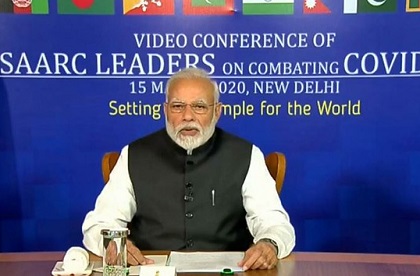 Courtesy: MEA/Flickr
Courtesy: MEA/Flickr
The first-ever virtual summit of leaders from member-states of the South Asian Association for Regional Cooperation on March 15 was an innovative exercise in showing solidarity in containing a pandemic. Here is an assessment of its tangible outcomes – and longer-term ways to prepare for SAARC’s revival
 Courtesy: Ministry of External Affairs
Courtesy: Ministry of External Affairs
COVID-19 unified G20 leaders at an extraordinary summit last week. An idea given a nudge by Prime Minister Narendra Modi, here was an opportunity for all participants to put together a plan and make a pledge for international cooperation, focusing on four main themes. Next, will they be able to turn words into action?
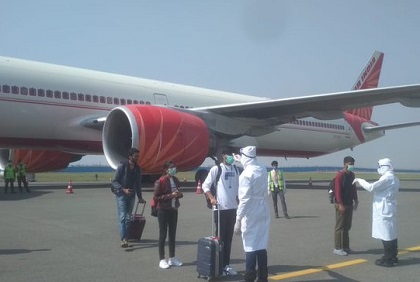 Courtesy: Twitter/MEA
Courtesy: Twitter/MEA
The Indian government, has, under challenging circumstances, evacuated, all through March 2020, nearly 3,000 Indian citizens, stranded in the hotspots of the coronavirus epidemic. These rescue operations, which have been performed adeptly since 1990, are a mark of a developed-country mindset with confidence-inspiring governance structures
 Courtesy: Twitter/Narendra Modi
Courtesy: Twitter/Narendra Modi
The Coronavirus Disease (COVID-19), which has spread to more than 160 countries, is a global challenge, calling for coordinated intervention at the national, regional and global levels. Rajiv Bhatia, Distinguished Fellow, Gateway House, in this interview, outlines four aspects of the calamity
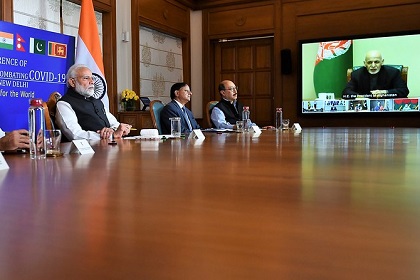 Courtesy: MEA/Flickr
Courtesy: MEA/Flickr
India has responded swiftly to contain the spread of the Corona Virus Disease. The government’s prompt and well-coordinated response, including in the diplomatic realm, shows direction from the highest political leadership. Yet, there is no room for complacency or slackening of vigilance
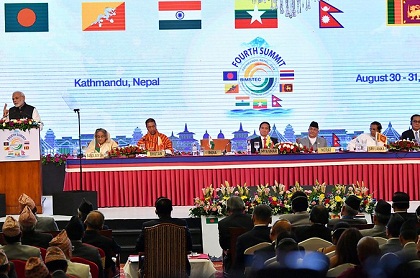 Courtesy: MEA/Flickr
Courtesy: MEA/Flickr
South Asia’s speedy economic development depends on the level of integration between countries in the region. The South Asian Association for Regional Cooperation (SAARC) and the Bay of Bengal Initiative for Multi-Sectoral Technical and Economic Cooperation (BIMSTEC) have lost their momentum. But both platforms have their uses and can be revived creatively
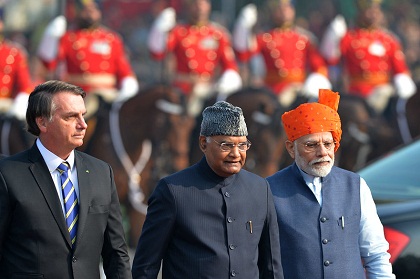 Courtesy: MEA/Flickr
Courtesy: MEA/Flickr
President Jair Bolsonaro’s visit to India in January helped correct the view that India-Brazil ties belong more in a multilateral forum. The accent this time was on the two countries’ congruence of interests amidst the current climate of geopolitical uncertainty and complex multipolarity and the scope for enhanced cooperation in four focus areas
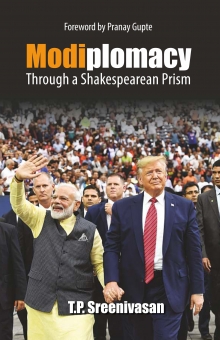 Courtesy: Konark Publications
Courtesy: Konark Publications
This is a generally positive analysis of the Prime Minister’s foreign policy in his first five-year term, but, like Shakespeare’s tragic heroes, he too has his flaws. This is not a research treatise, but more an overview of contemporary events that will interest students of international affairs
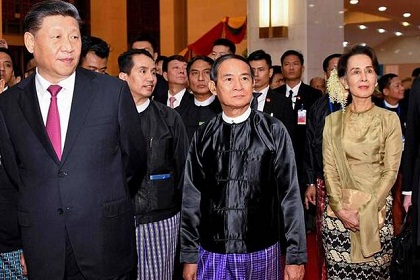 Courtesy: The Hindu/Handout
Courtesy: The Hindu/Handout
Chinese president Xi Jinping’s visit to Myanmar on January 17 highlighted the economic aspect of the two countries’ bilateral relationship. China has been Myanmar’s top partner for years. But more than the 33 agreements signed, the visit threw light on the region’s changing geopolitics and Myanmar’s own compulsions in growing closer to China

 Courtesy: Shutterstock
Courtesy: Shutterstock
 Courtesy: MEA/Flickr
Courtesy: MEA/Flickr
 Courtesy: Ministry of External Affairs
Courtesy: Ministry of External Affairs
 Courtesy: Twitter/MEA
Courtesy: Twitter/MEA
 Courtesy: Twitter/Narendra Modi
Courtesy: Twitter/Narendra Modi
 Courtesy: MEA/Flickr
Courtesy: MEA/Flickr
 Courtesy: MEA/Flickr
Courtesy: MEA/Flickr
 Courtesy: MEA/Flickr
Courtesy: MEA/Flickr
 Courtesy: Konark Publications
Courtesy: Konark Publications
 Courtesy: The Hindu/Handout
Courtesy: The Hindu/Handout
